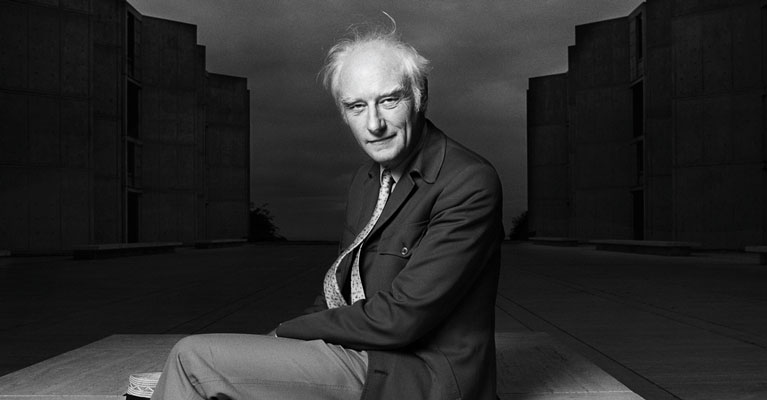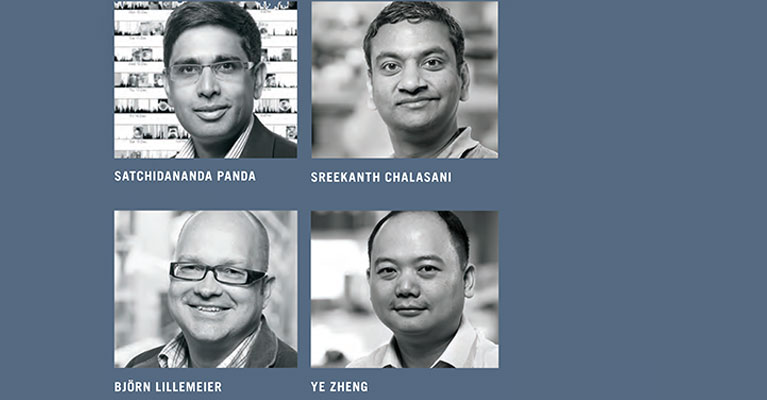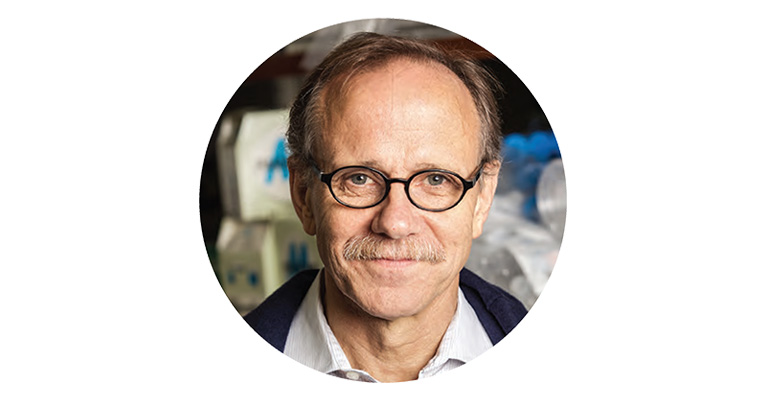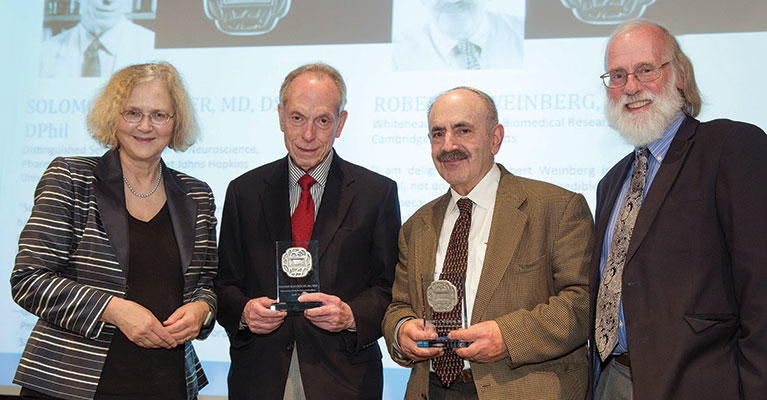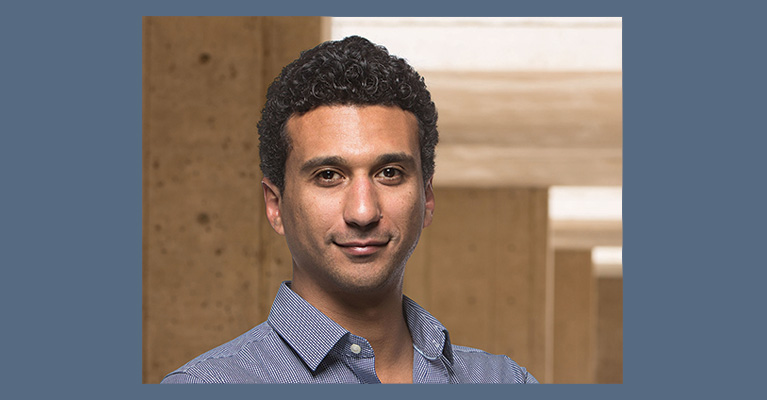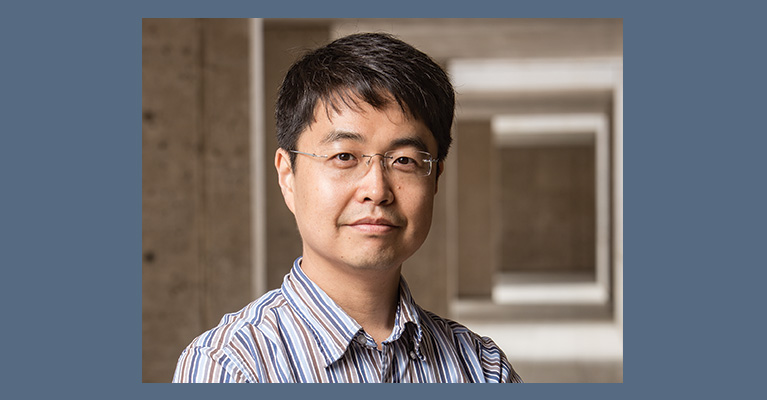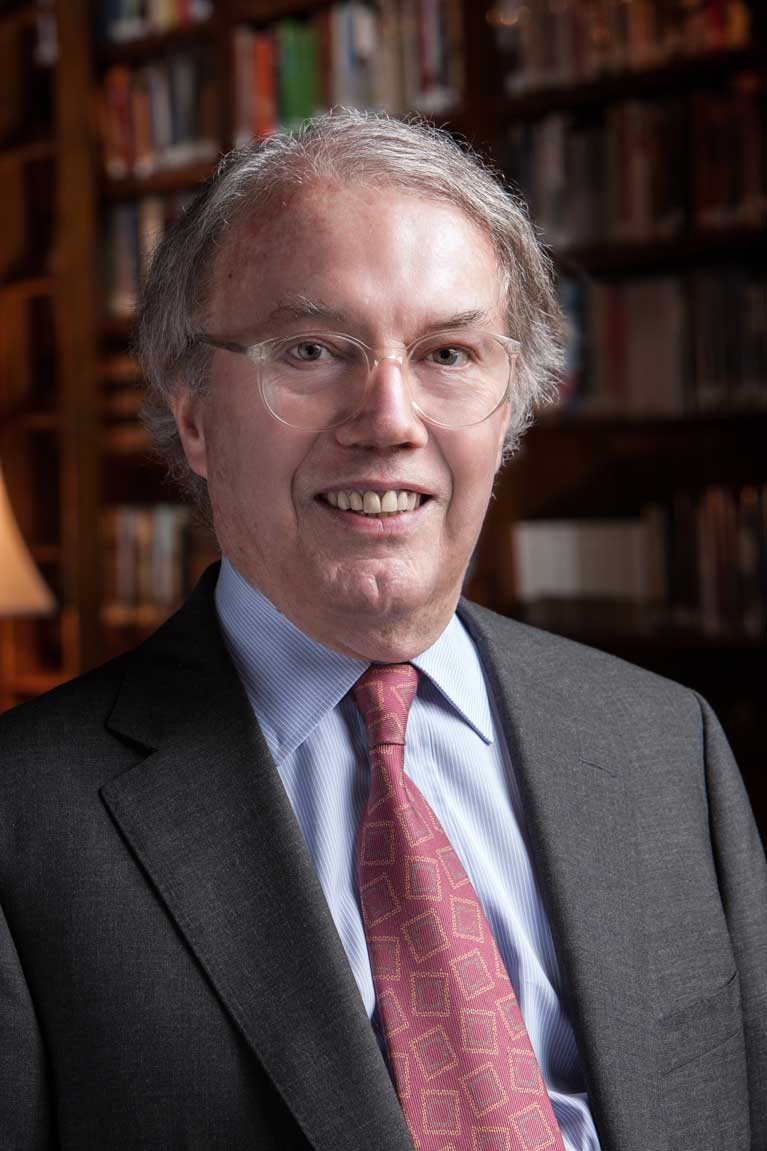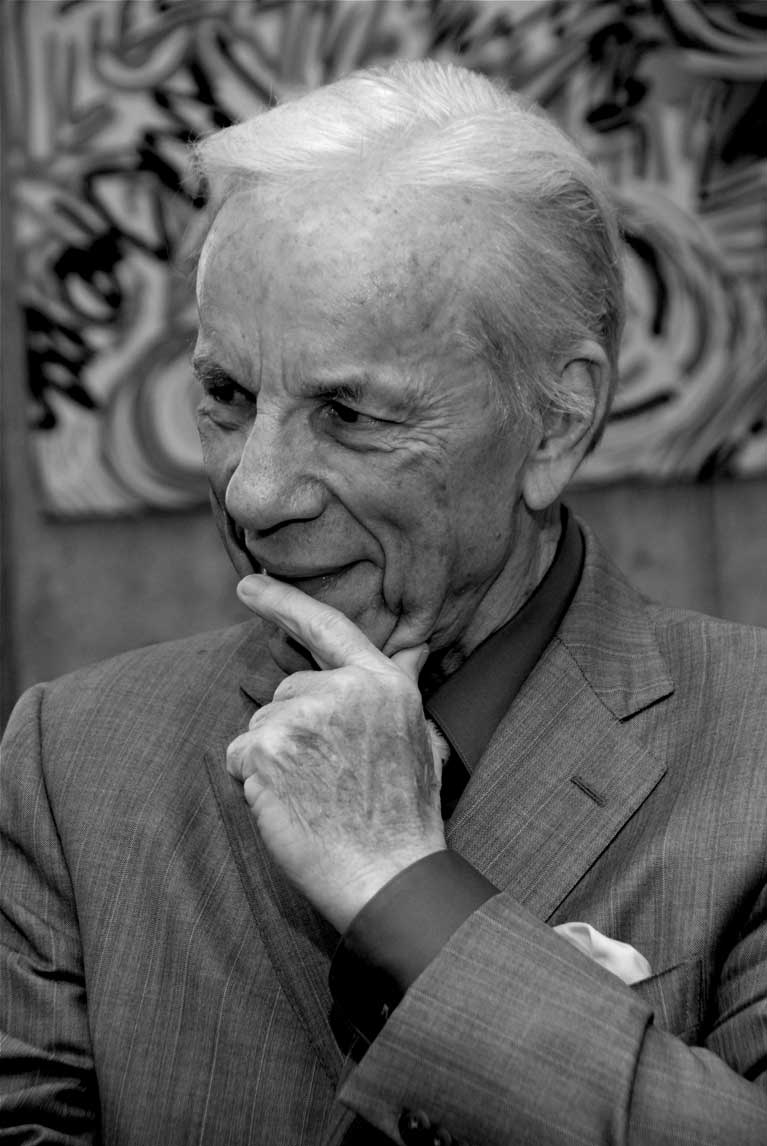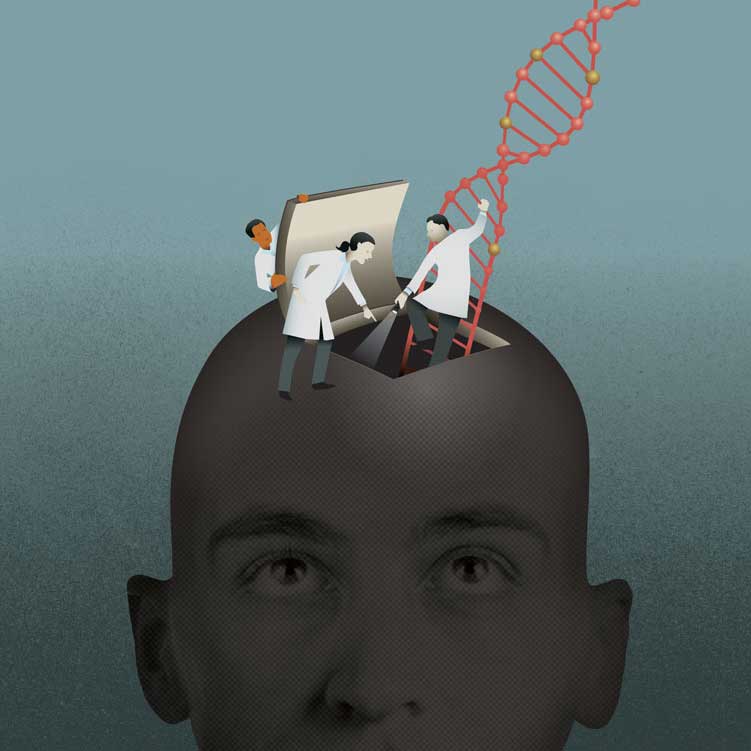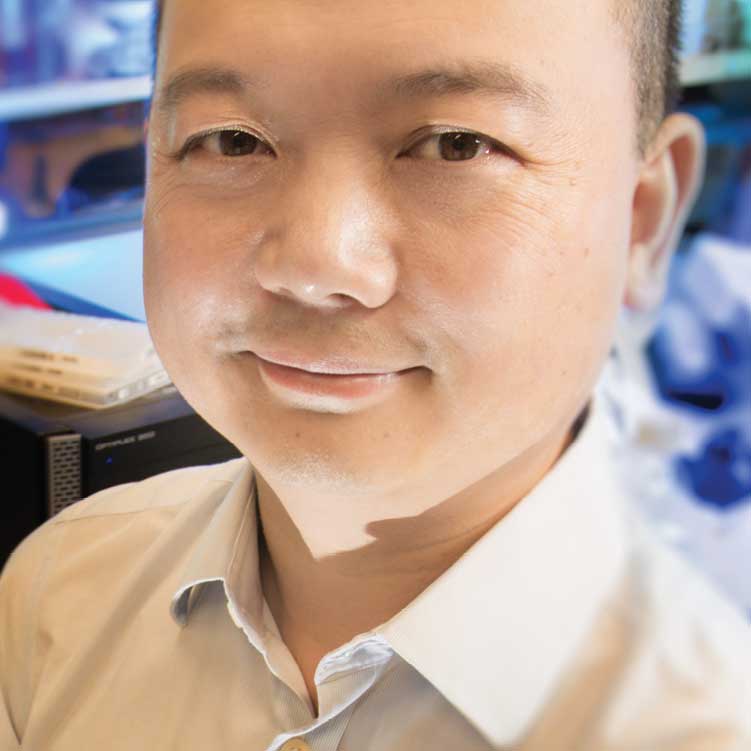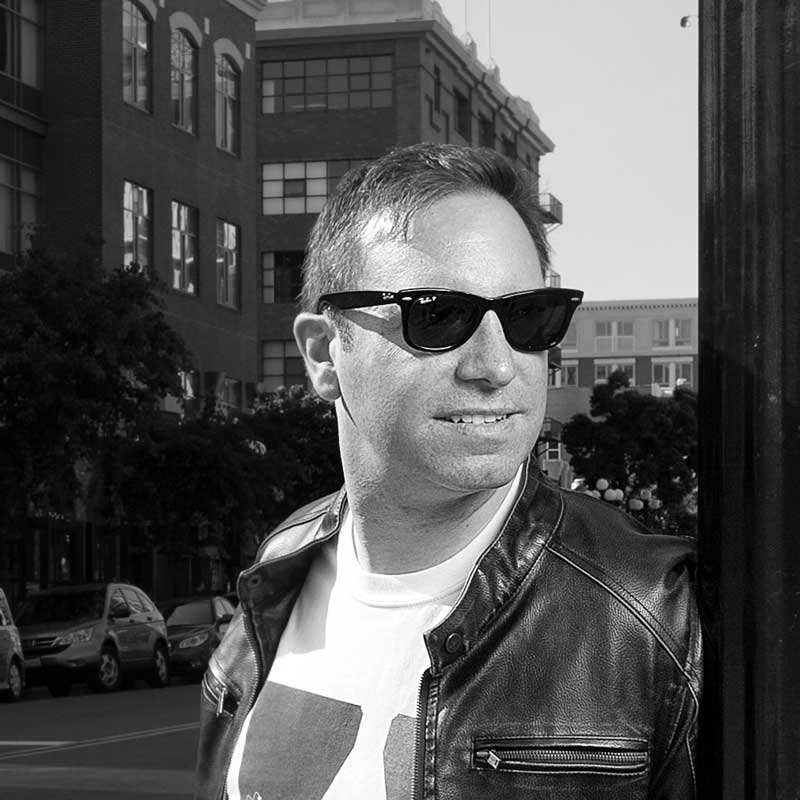“It’s true that by blundering about we stumbled on gold, but the fact remains that we were looking for gold.”
So said the eminently quotable Francis Crick about his 1953 discovery with James Watson of the structure of the DNA molecule. Crick joined the Salk Institute faculty in 1976 and for the next 27 years focused on neuroscience, championing research to discover the neural underpinnings of consciousness. This year, on June 8, Salk commemorated the centenary of his birth.






















































